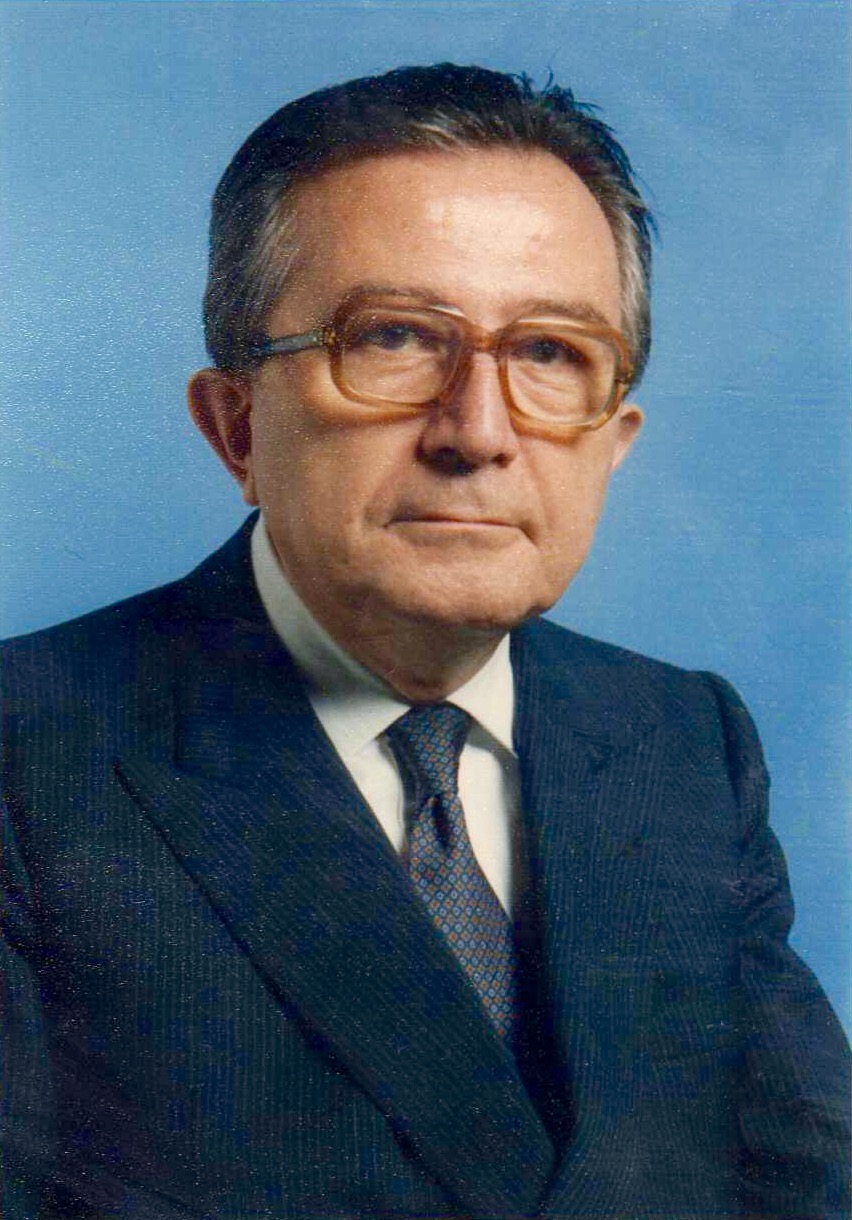
Giulio Andreotti
Giulio Andreotti OMI SMOM OCSG OESSH (US: /ˌɑːndreɪˈɒti/ AHN-dray-OT-ee,[2] Italian pronunciation: [ˈdʒuːljo andreˈɔtti]; 14 January 1919 – 6 May 2013) was an Italian politician and statesman who served as the 41st prime minister of Italy in seven governments (1972–1973, 1976–1979, and 1989–1992),[3] and was leader of the Christian Democracy party and its right-wing; he was the sixth-longest-serving prime minister since the Italian unification and the second-longest-serving post-war prime minister. Andreotti is widely considered the most powerful and prominent politician of the First Republic.[4][5][6]
Giulio Andreotti
Francesco Cossiga
Giovanni Leone
Himself
Himself
Ferdinando Facchiano
Himself
Franco Piga
Giuseppe Guarino
Bettino Craxi
Amintore Fanfani
Giovanni Goria
Ciriaco De Mita
Himself
Francesco Cossiga
Amintore Fanfani
Amintore Fanfani
Mario Tanassi
Antonio Segni
Fernando Tambroni
Amintore Fanfani
Giovanni Leone
Aldo Moro
Antonio Segni
Aldo Moro
Giovanni Leone
Edgardo Lami Starnuti
Mario Tanassi
Amintore Fanfani
Antonio Segni
Adone Zoli
Paolo Cappa
Mariano Rumor
14 January 1919
Rome, Kingdom of Italy
6 May 2013 (aged 94)
Rome, Italy
Christian Democracy
(1942–1994)
Italian People's Party
(1994–2001)
European Democracy
(2001–2002)
Independent
(2002–2008)
Union of the Centre
(2008–2013)[1]
4, including Lamberto
- Politician
- journalist
- lawyer
Beginning as a protégé of Alcide De Gasperi, Andreotti achieved cabinet rank at a young age and occupied all the major offices of state over the course of a 40-year political career, being seen as a reassuring figure by the civil service, business community, and Vatican. In foreign policy, he guided Italy's European Union integration and established closer relations with the Arab world. Admirers of Andreotti saw him as having mediated political and social contradictions, enabling the transformation of a substantially rural country into the world's fifth-largest economy. Critics said he had done nothing to challenge a system of patronage that had led to pervasive corruption. Andreotti staunchly supported the Vatican and a capitalist structure, and opposed the Italian Communist Party. Following the popular Italian sentiment of the time, he supported the development of a strong European community playing host to neoliberal economics. He was not opposed to the implementation of the European Social Fund and the European Regional Development Fund in building the European economy.[7]
At the height of his statesman career, Andreotti was subjected to criminal prosecutions and charged with colluding with Cosa Nostra. Courts managed to prove that he was undoubtedly linked with them until 1980; however, the case was closed due to past statutes of limitations.[8] The most sensational allegation came from prosecutors in Perugia, who charged him with ordering the murder of a journalist. He was found guilty at a trial, which led to complaints that the justice system had "gone mad". After being acquitted of all charges, in part due to statute-barred limitations,[8] Andreotti remarked: "Apart from the Punic Wars, for which I was too young, I have been blamed for everything that's happened in Italy."[9]
In addition to his prime ministerial posts, Andreotti served in numerous ministerial positions, among them as Minister of the Interior (1954 and 1978), Minister of Finance (1955–1958), Minister of Treasury (1958–1959), Minister of Defence (1959–1966 and 1974), Minister of Budget and Economic Planning (1974–1976), and Minister of Foreign Affairs (1983–1989), and was a senator for life from 1991 until his death in 2013.[3] He was also a journalist and author. Andreotti was sometimes called Divo Giulio (from Latin Divus Iulius, "Divine Julius", an epithet of Julius Caesar after his posthumous deification), or simply Il divo.[9]
Background and attributes[edit]
Andreotti, the youngest of three children, was born on 14 January 1919 in Rome.[10] His father, who died when Giulio was two, was a primary school teacher from Segni, a small town in Lazio; after a few years his sister Elena also died. Andreotti attended the Liceo Torquato Tasso in Rome and graduated in law at the University of Rome, with a mark of 110/110.[11]
Andreotti showed some ferocity as a youth, once stubbing out a lit taper in the eye of another altar boy who was ridiculing him. His mother was described as not very affectionate. An aunt is said to have advised him to remember that few things in life are important and never to over-dramatise difficulties. As an adult, he was described as having a somewhat unusual demeanor for an Italian politician, being mild-mannered and unassuming. Andreotti did not use his influence to advance his children to prominence, despite being widely considered the most powerful person in the country for decades. "See all, tolerate much, and correct one thing at a time" was a quote that emphasised what has been called his "art of the possible" view of politics.[12]
Andreotti was known for his discretion and retentive memory, and also a sense of humour,[3] often placing things in perspective with a sardonic quip.[13][14][15] Andreotti's personal support within the Christian Democrats was limited, but he could see where the mutual advantage for apparently conflicting interests lay and put himself at the centre of events as mediator.[16] Though not a physically imposing man, Andreotti navigated political waters through conversational skill.[17]